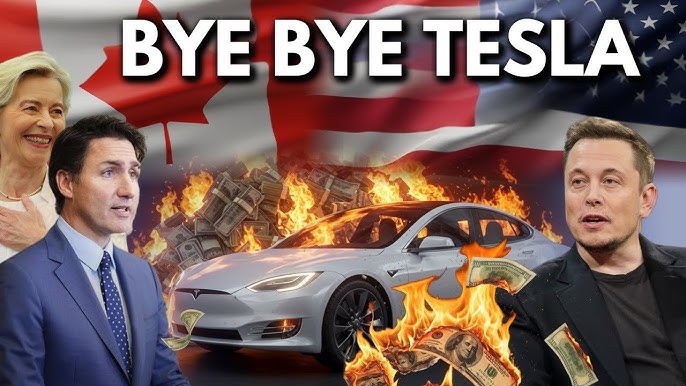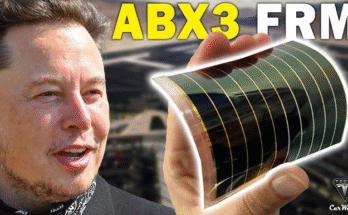In a surprising twist in the electric vehicle (EV) market, Canada has announced a groundbreaking partnership with the European Union (EU) that could reshape the landscape of EV production and sales. This deal not only marks a significant shift in Canada’s automotive strategy but also poses a formidable challenge to industry giants like Tesla.

The Deal: What You Need to Know
The agreement, unveiled in a high-profile ceremony in Ottawa, aims to enhance cooperation between Canada and the EU in the development and production of electric vehicles. With a focus on sustainability and innovation, the partnership includes shared resources for research and development, joint manufacturing initiatives, and incentives for EV adoption across both regions.
Canadian Prime Minister Justin Trudeau expressed optimism about the deal, stating, “This partnership is a leap forward in our commitment to a greener future. Together with the EU, we can lead the world in electric mobility and set new standards for environmental responsibility.”
Why Tesla Should Be Concerned
Tesla, currently a dominant player in the EV market, might find itself facing a new wave of competition as Canada and the EU ramp up their efforts. The collaboration is expected to result in a surge of new EV models, potentially offering consumers more choices and competitive pricing.
Industry analysts suggest that the strategic advantage of combining Canadian resources—such as lithium and nickel, crucial for battery production—with European manufacturing prowess could yield powerful new contenders against Tesla. Moreover, the deal promises to streamline regulations and standards, making it easier for new entrants to capture market share.

The Future of EVs in North America
As Canada aligns itself more closely with European standards, the implications for the North American EV market could be profound. The shift may lead to a re-evaluation of existing trade agreements and could inspire similar collaborations between the U.S. and European nations.
Experts predict that this partnership could accelerate the transition to electric vehicles in North America, driven by a commitment to reducing carbon emissions. With federal incentives and a growing consumer base, the stage is set for a rapid evolution in the automotive landscape.
What This Means for Consumers
For consumers, this deal could herald a new era of innovation and affordability in the EV sector. As competition heats up, buyers may benefit from a wider selection of vehicles equipped with cutting-edge technology, improved range, and enhanced safety features—all at potentially lower prices.
In addition, the focus on sustainability means that consumers can feel good about their purchase decisions, aligning their choices with environmental goals.
Conclusion
Canada’s shocking deal with the EU signals a significant shift in the electric vehicle industry, presenting both challenges and opportunities. As the partnership unfolds, it remains to be seen how Tesla and other automakers will respond to this new competitive landscape. One thing is clear: the future of electric mobility is evolving rapidly, and stakeholders must adapt or risk being left behind.
As we look ahead, the question remains: will Tesla maintain its dominance, or will this partnership pave the way for a new era of electric vehicles? Only time will tell, but the stakes have never been higher.


